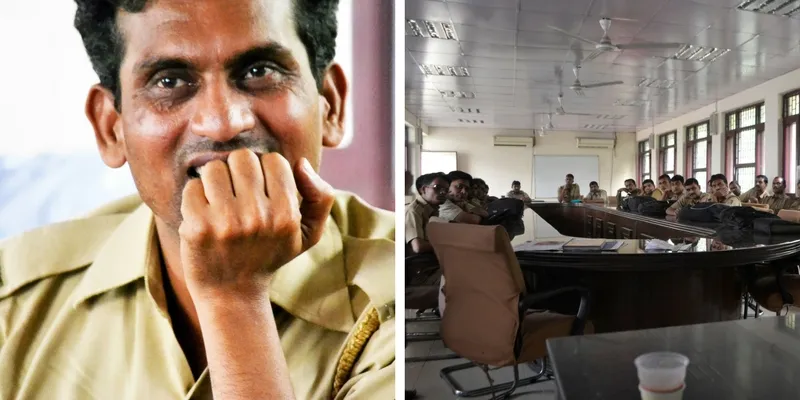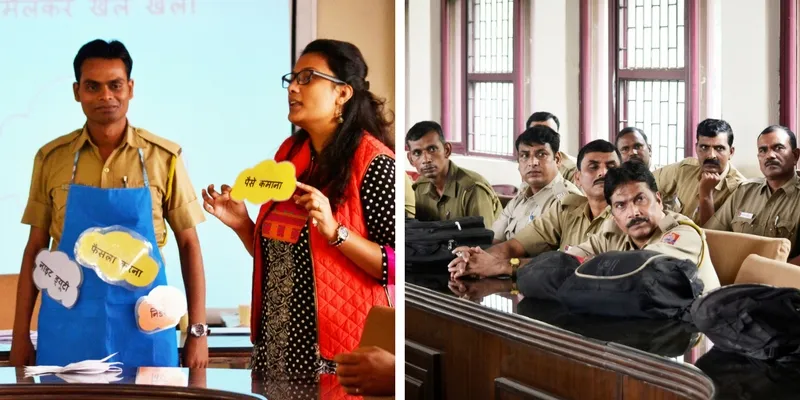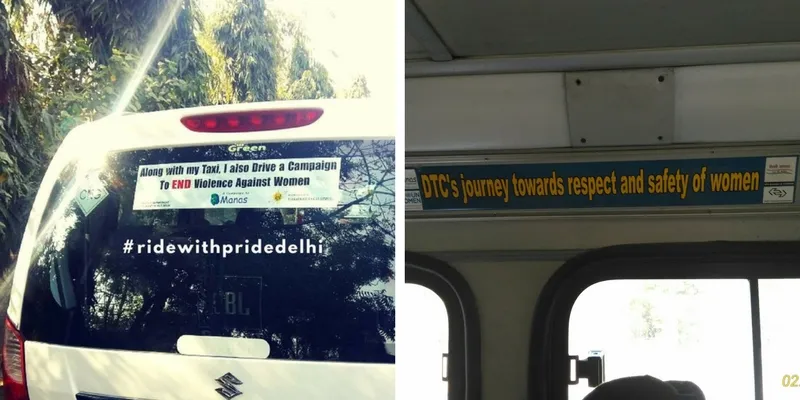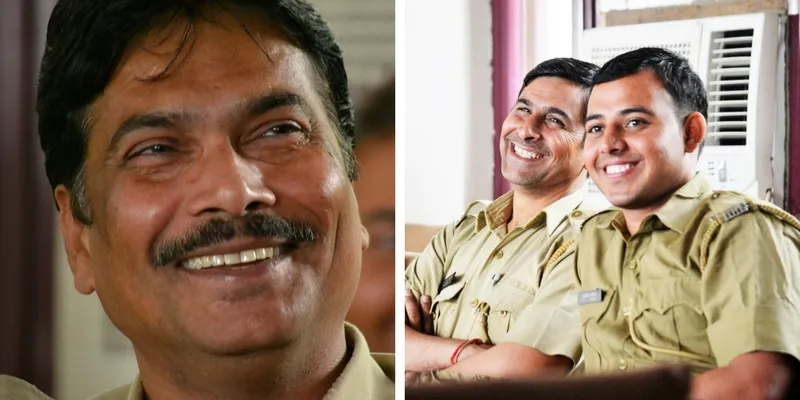Manas Foundation has trained 2.4 lakh auto, taxi and bus drivers of Delhi to become women-friendly
Manas Foundation has been actively working in the field of mental health and gender equity and justice for the past 15 years.
The Indian woman is playing multiple roles today. She dons the hats of wife, professional, and mother with the utmost ease. However, while playing all these roles, a woman, at the end of the day, has to travel, be it in a city, town or village. The safety of women while travelling is increasingly being threatened, and gender sensitisation has become an issue in urgent need of address.
Manas Foundation from Delhi, working in the field of mental health and gender equity and justice for the last 15 years, is doing just that.

The need for gender sensitisation
Manas Foundation was founded in 2000 by Monica Kumar, a practicing psychologist and an Ashoka Fellow, Dr. Amiya Banerjee, a practicing psychiatrist, and Naveen Kumar, a practicing psychologist.
The three founding trustees, who have worked extensively in mental health service delivery in both hospitals and communities, founded Manas to extend mental health services to a broader community.
Manas started working on gender sensitisation with police personnel in 2010-11, using models of psycho-social and civic-legal perspectives as part of the personnel training.
After the Nirbhaya incident, the collective consciousness of the society was shaken to a large extent. In thinking on what would be an innovative process to bring about a change in society, Manas proposed targeting the drivers of public transport systems that exist in the city. This was due to two main reasons.
“Firstly, women come in close proximity with the drivers in these closed spaces, thereby providing a situation for interaction between the two that could result in abuse, in any of its forms, and secondly, more than men, women depend upon autos and taxis as the preferred choice for last mile connectivity. Also notable is the fact that each driver is a standalone entity, highly mobile and not generally connected to any organisation or union, thereby making access a real challenge,” says Monica Kumar.

Early challenges
When the team was conceptualising the programme, getting drivers onboard was the primary challenge. The team was able to overcome this by creating a unique partnership between the government (Transport Department of Government of NCT Delhi), the private sector as a CSR partner (IGL), and Manas, representing civil society, to address the issue.
The trainings were mandated by the government as part of the refresher course that the drivers have to undergo when they come in for their yearly fitness or driving license renewal. It is because of this unique partnership that the programme has been sustained for the last three years and has now extended its reach to all commercial vehicle drivers in Delhi NCR.
In 2014, Manas, in collaboration with Indraprastha Gas Limited (IGL), started a distinctive training programme for public transport personnel, engaging men in taking ownership of the safety of their women passengers.

“Mera Imaan, Mahilaaon Ka Sammaan”
Manas has developed robust partnerships with the Government of NCT Delhi, through which around 4,000 beneficiaries are serviced for psychosocial needs every month.
Building Bonds, a gender sensitisation programme, was incepted with Delhi’s auto-rickshaw drivers. The training module of the programme aims to bring about a behavioural change in response to the cognitive dissonance that is intentionally created during the training. External evaluations of Building Bonds with Auto-Rickshaw Drivers have revealed that over 81 percent of the drivers remember/recall the training and have made behavioural changes in consonance with it.
This is a first-of-its kind initiative, and has been made a policy mandate.
The programme has successfully trained over 160,000 auto drivers, 60,000 taxi drivers, 20,000 bus/gramin seva/tempo drivers, and 1,800 DTC bus marshals since January 2014.
Monica Kumar, who is the Managing Trustee and Co-founder, states, “What makes this programme unique is its mental health approach in engaging men in gender justice.”
The Sahara helpline started by Manas Foundation caters to all the participants of their gender sensitisation trainings, including commercial vehicle drivers and DTC bus marshals. This helpline can be used by the participants in case they see any kind of misconduct, from accidents to gender discrimination and sexual harassment, to gain guidance on how to cope with or handle the situation.
Taxis and autos with stickers reading “MeraImaan, MahilaaonKaSammaan” or “Along with my Auto/Taxi, I also drive a campaign to END violence against women” were seen across NCR, which was an initiative by Manas.

Campaign
In 2015, Manas tied up with the Delhi Transport Corporation (DTC) during the first phase of the DTC Marshal Training Programme, which was funded by UN Women. In this phase, approximately 1,800 of the 4,000 marshals were given gender sensitisation training.
The training starts with evoking cognitive dissonance in the marshals, thereby priming them for change. It is followed by participatory activities that clearly explain the concept of gender and how the laws governing gender discrimination and abuse have changed over the last few years. The training helps clarify what encompasses sexual harassment and what kinds of interventions are most successful in dealing with and intervening if sexual harassment is visibly taking place.
In the second phase of the training, Manas aims to complete training for all remaining marshals. Manas is currently running a crowdfunding campaign for the second phase of the programme.
Image Credit - Manas Foundation.







